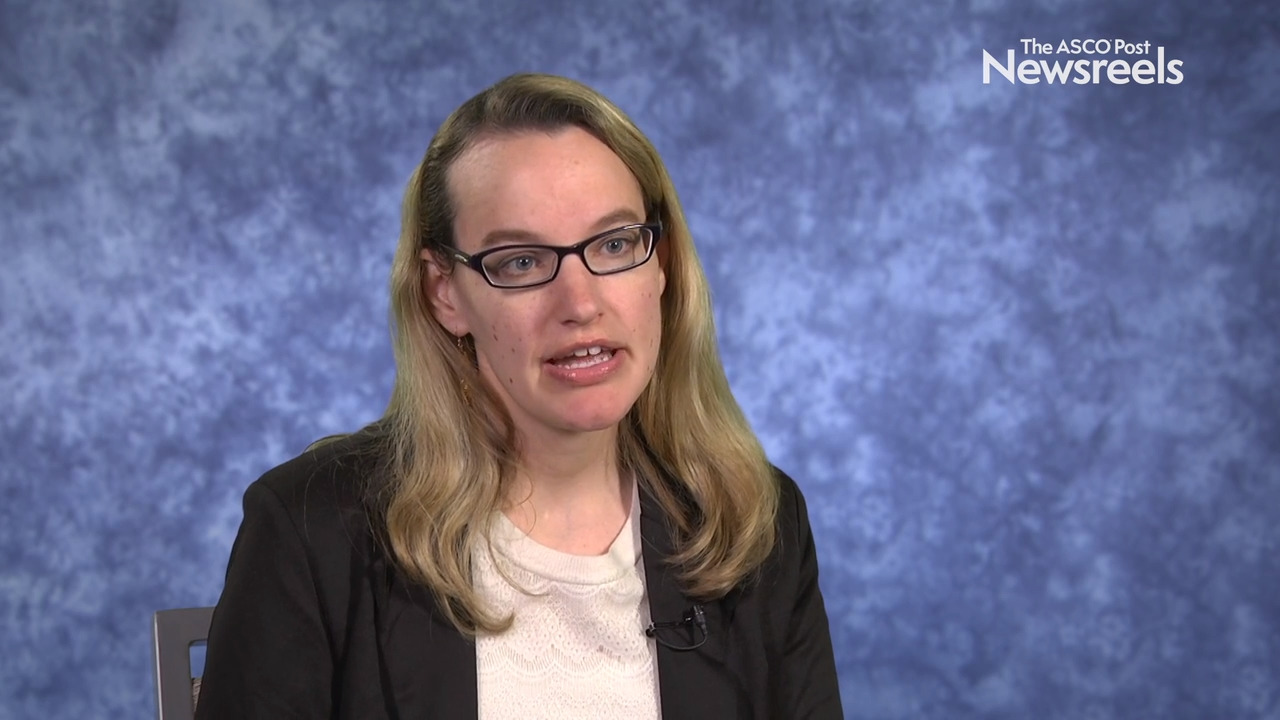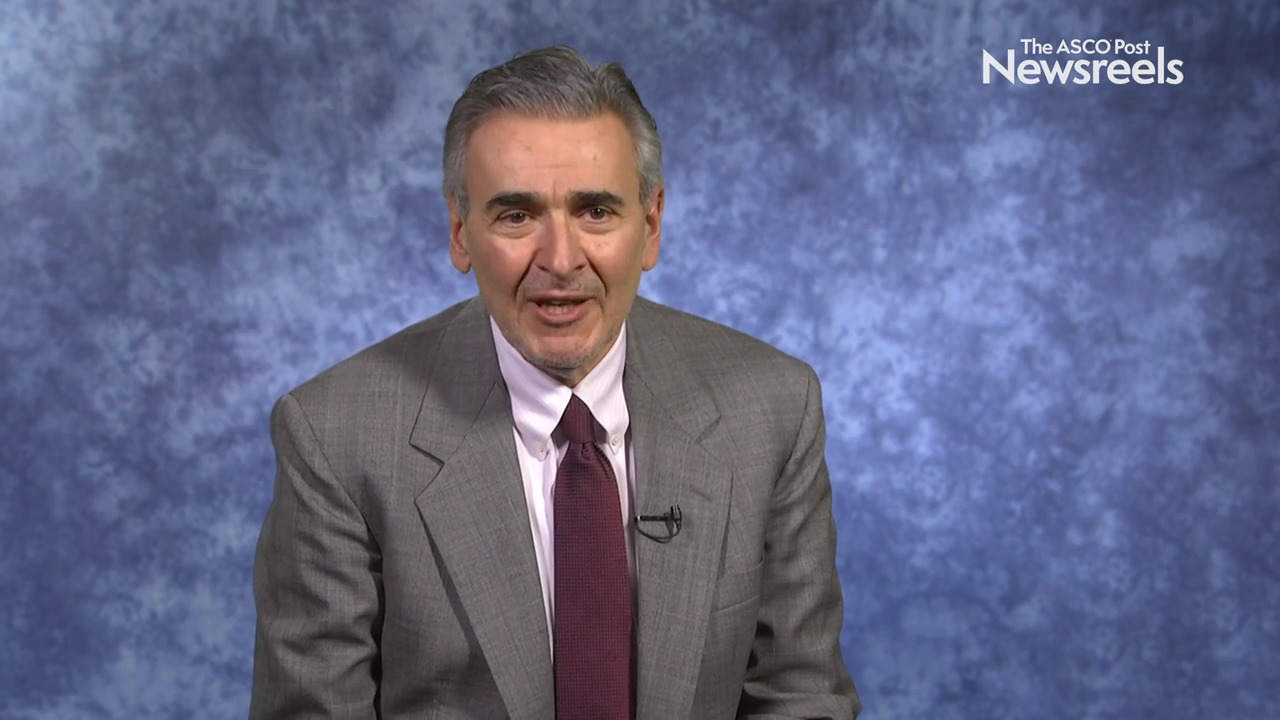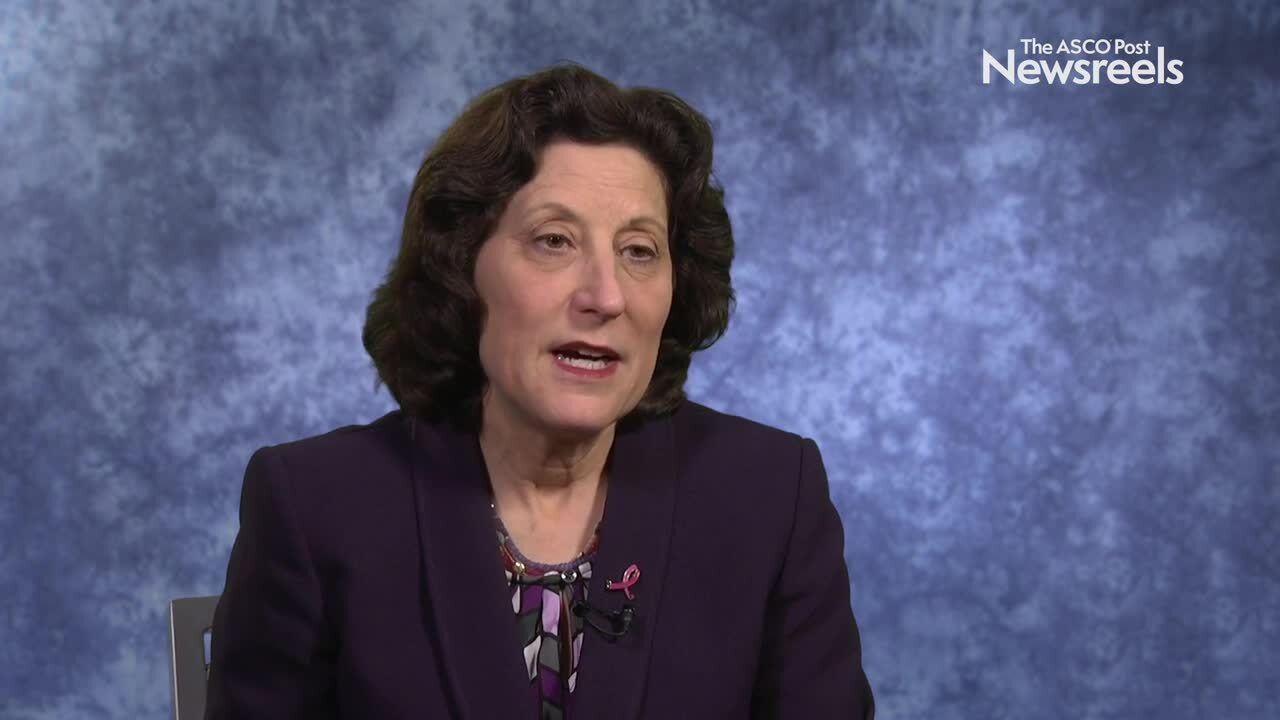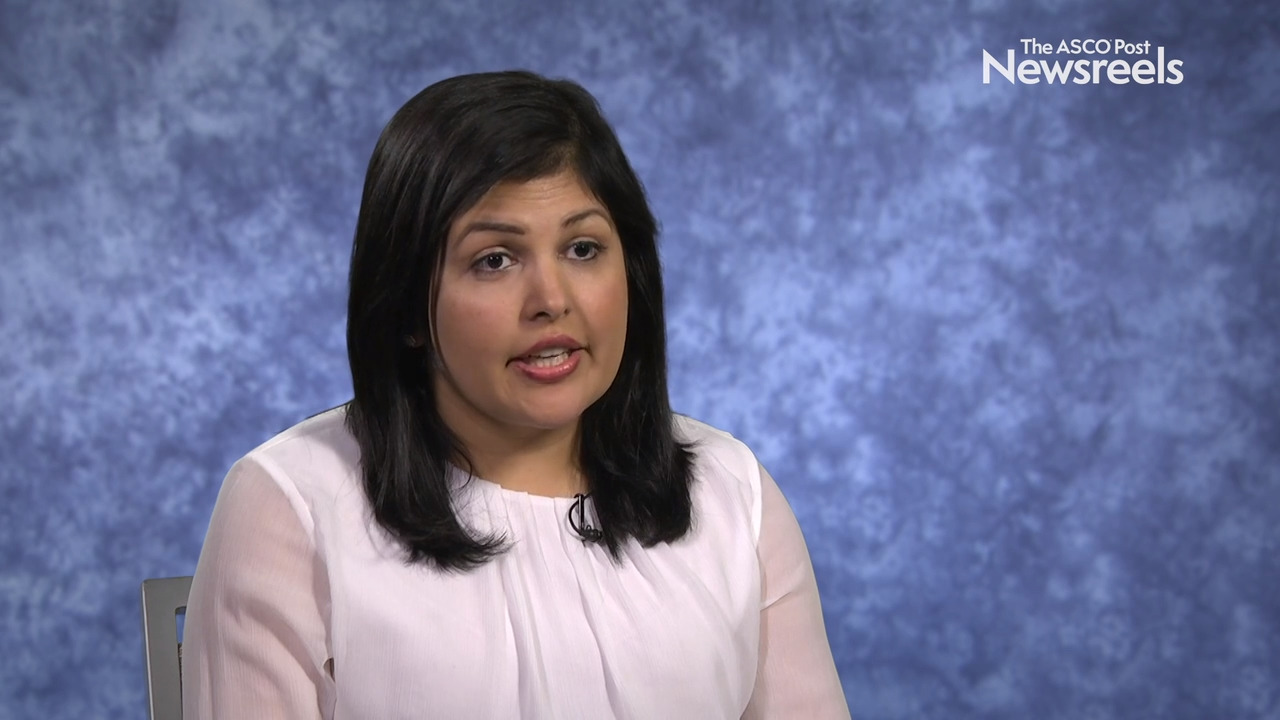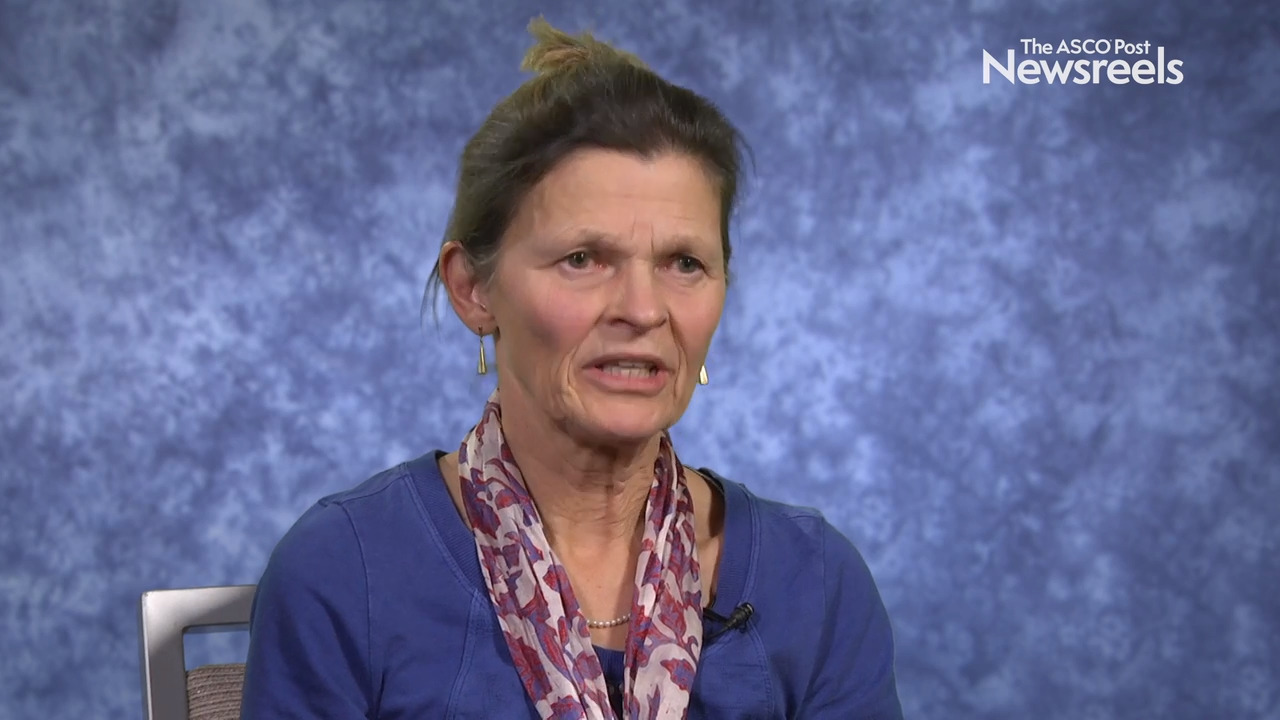Icro Meattini, MD, on Breast Irradiation After Breast-Conservation Surgery: 10-Year Follow-up Results
2019 San Antonio Breast Cancer Symposium
Icro Meattini, MD, of the University of Florence, discusses study findings that showed the less-invasive partial-breast irradiation using intensity-modulated radiotherapy after surgery may be an acceptable choice for patients with early breast cancer, as it is cost-effective, safe, and efficacious when compared with whole-breast irradiation (Abstract GS4-06).
Ariella B. Hanker, PhD, of UT Southwestern Medical Center, discusses data showing that breast cancers expressing co-occurring HER2 and HER3 mutations may require the addition of a phosphoinositide 3-kinase alpha inhibitor to a HER2 tyrosine kinase inhibitor (Abstract GS6-04).
Joseph Sparano, MD, of the Montefiore Medical Center, discusses three challenges:
- How can gene-expression profiles and other diagnostic tests be used to guide the use of adjuvant systemic therapy?
- Is it time to reappraise active surveillance?
- Are there diagnostic and therapeutic strategies that can identify tumors at highest risk of metastasis, and novel therapies that can block the spread of disease?
Hope S. Rugo, MD, of the University of California San Francisco Comprehensive Cancer Center, discusses a retrospective analysis on the effectiveness of the VENTANA PD-L1 SP142 assay, the Dako 22C3 assay, and the VENTANA SP263 assay as predictors of response to atezolizumab plus nab-paclitaxel in patients with metastatic triple-negative breast cancer (Abstract PD1-07).
Rashmi K. Murthy, MD, of The University of Texas MD Anderson Cancer Center, discusses data on the efficacy and safety of tucatinib, trastuzumab, and capecitabine, a treatment regimen under investigation for patients with advanced HER2-positive metastatic breast cancer refractory to standard-of-care regimens (Abstract GS1-01).
Madeleine M.A. Tilanus-Linthorst, MD, PhD, of Erasmus University, reports data from the first randomized trial comparing MRI breast cancer screening with mammography in women with a familial risk. Because MRI screening detected cancer at an earlier stage, it might reduce the use of adjuvant chemotherapy and decrease breast cancer–related mortality (Abstract GS4-07).
